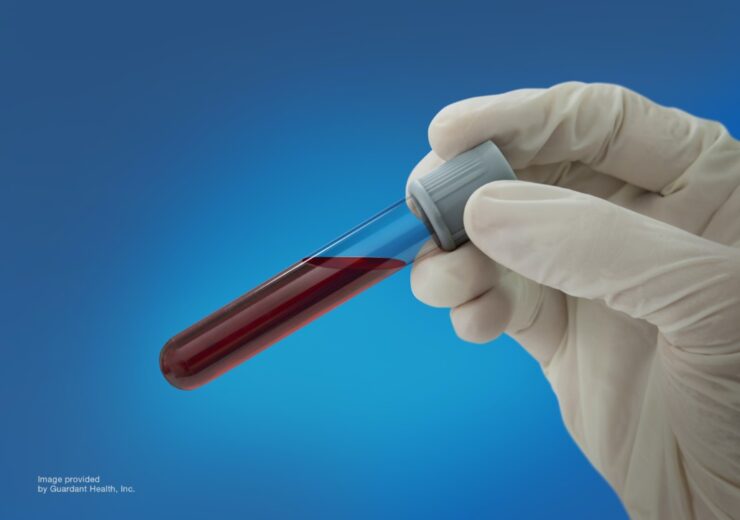Shield is a blood-based Laboratory Developed Test (LDT) that detects circulating tumour DNA (ctDNA) in the bloodstream, which is released by tumours and indicates the presence of cancer to screen for colorectal cancer (CRC)

Blood vial in hand. (Credit: Guardant Health)
US-based precision oncology company Guardant Health has submitted an application to the US Food and Drug Administration (FDA), seeking premarket approval (PMA) for its Shield cancer test.
Shield is a blood-based test designed to identify specific characteristics of the DNA in blood samples to screen for colorectal cancer (CRC).
The Laboratory Developed Test (LDT) detects circulating tumour DNA (ctDNA) in the bloodstream, which is released by tumours and indicates the presence of cancer.
Guardant has validated the clinical performance of the Shield test in a screening study, which used an analysed set of more than ten thousand patient samples.
In the study, Shield showed 83% sensitivity and 90% specificity in detecting individuals with CRC, and also showed 13% sensitivity in detecting advanced adenomas, said the company.
Guardant Health co-CEO AmirAli Talasaz said: “Completing our FDA PMA application for Shield is a significant step forward toward our mission of saving millions of life-years through accessible blood-based cancer screening.
“We are looking forward to partnering with the agency on bringing this life-saving test to the market.
“Colorectal cancer is the second leading cause of cancer-related death, yet one in three eligible adults are not up to date with screening.
“Patient access to blood-based screening can help overcome barriers to traditional screening modalities, especially in underserved populations.”
Guardant’s PMA submission includes positive results from its registrational study ECLIPSE which enrolled more than 20,000 study participants.
ECLIPSE evaluated the efficacy of the company’s blood test in detecting CRC, compared to a screening colonoscopy in average-risk adults aged 45 to 84 years.
The study was conducted at more than 200 clinical trial sites in rural and urban communities across the US.
In the preliminary results, the study showed that the Shield test achieved 83% sensitivity and 90% specificity in the detection of CRC.
Last month, Guardant initiated a new study to examine patient preference for Shield, and whether providing a blood test option would improve patient adherence to screening.
The study is planned to be conducted by the University of Chicago Medicine (CAHE-UCM) Center for Asian Health Equity.
